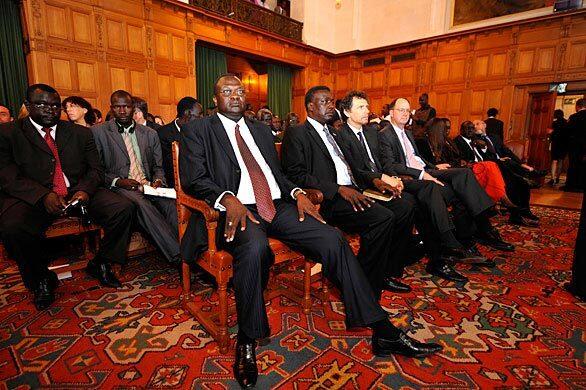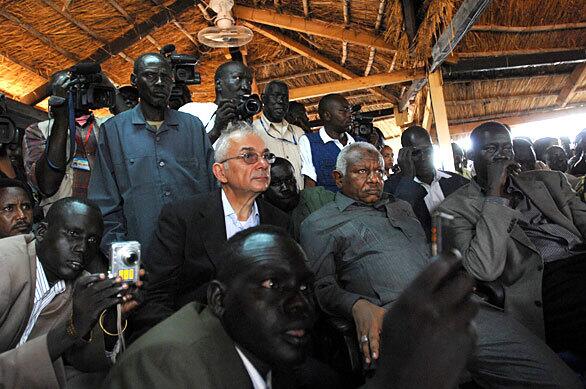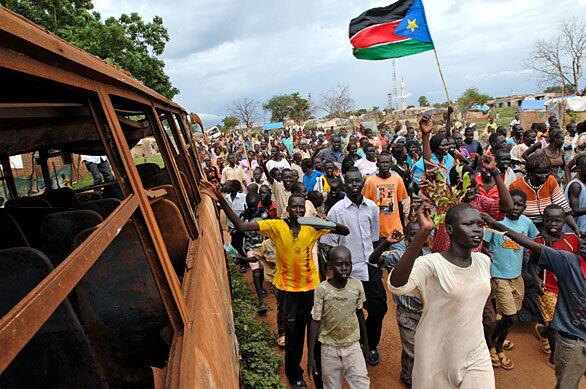Sudan border ruling

Members of the delegation of the Sudan People’s Liberation Movement are seen at the Great Hall of Justice at the Peace Palace in The Hague, Netherlands. An international arbitration panel awarded the Sudanese government control over a large oil field, settling a boundary dispute with southern Sudan that led to bloodshed last year. The five-member Permanent Court of Arbitration affirmed the northern boundary of the Abyei region as set by a 2005 boundary commission, but drew new boundaries in the east and west that placed the Heglig oil fields and the Nile oil pipeline under control of the Khartoum government. (Ermindo Armino / Associated Press)

Special Representative of the Secretary-General for the

Abyei residents march in celebration of the Hague panel’s decision governing their oil-rich region on Sudan’s north-south border. In 2011, according to a peace accord that ended a 21-year civil war, they can opt to join the south or north. (Tim McKulka / AFP/Getty Images)

Residents of Abyei, one displaying the flag of southern Sudan, celebrate the decision of the Hague-based Permanent Court of Arbitration resolving the north-south boundary dispute that erupted into violence last year when government forces and former southern rebels clashed in Abyei. (Tim McKulka / Associated Press)



